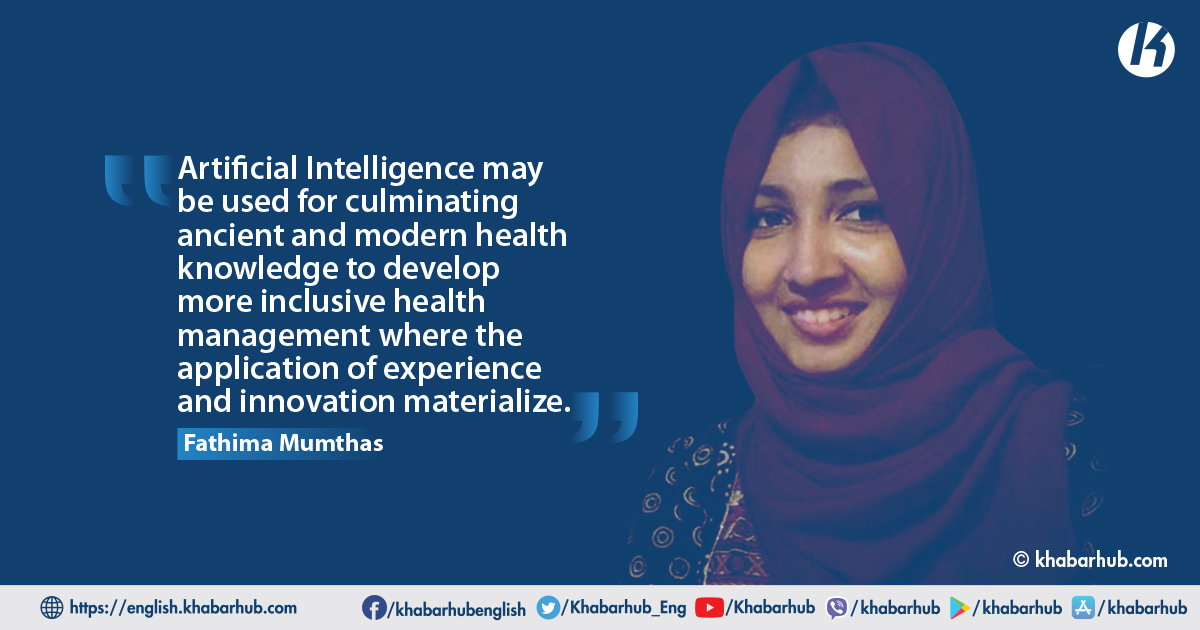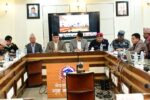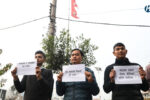The novel trend in almost all socio-economic ventures is the speculations and demonstrations of the possible changes carried by artificial intelligence-infused machines.
The hype of AI is driving various institutions and industries in south Asia to converse and debate over its so-called dos and don’ts. Even though South Asia is witnessing rapid growth we still have hurdles to cross in many sectors especially education, health, and the primary sector.
Optimistic approaches and innovative solutions have to be the driving force of AI-infused business models to have an impact on deeply unequal economies.
There are factual numbers on positive growth measures in the developing nations but income inequality is breeding behind the curtains. lack of basic human infrastructures will spur societal division leading to social dissatisfaction challenging the democratic order.
Artificial intelligence winged with Algorithms, smart production machines, cloud computing, improved analytics, autonomous critical care systems, auto cricothyrotomy and many more improvises will have the capacity to address plenty of social issues.
South Asia is going through a particular period that demands more employment opportunities and a skilled human force.
Artificial intelligence provides speedy and accurate diagnosis, autonomous critical care systems, auto intubation, and auto cricothyrotomy that can increase the efficiency and capacity of the medical sector.
Certainly, the allocation of adequate schools and ensuring the participation of both girls and boys do have a lot of other dimensions to consider.
Child labor, child marriage, severe poverty, lack of transportation infrastructure, inability to pay for higher education and many other direct and indirect conditions makes education a luxury.
Artificial intelligence brings up the mark in its ability to handle any language local or national. This can build up hope in most rural areas and give a start to the development of the neglected section of people.
It is the question of job creation that matters while AI will possibly destroy the employment of a vast section of the labor force.
Artificial intelligence is used in schools in China where it aids in measuring the concentration levels of students and analyzing their special needs in any course and improving learning efficiency.
But if we consider the needs of the developing world, we can easily understand that we need to improve our basic infrastructure first to cope with the coming digital revolution.
Artificial intelligence is defined as “The theory and development of computer systems able to perform tasks normally requiring human intelligence”.
Research in AI has shown that it can aid the teachers to better understand the different needs of each student like in which course he/she needs more attention or if he/she can cope with the analytical part helping to build a more efficient teacher-student rapport.
Many rural schools are lacking proportionate qualified teachers because of scarce fund allocation or limited transport facilities.
Artificial intelligence can be used here to facilitate continuous schooling which can be managed with fewer staff.
For that, adequate electricity and funding must be incentivized to build an atmosphere where this can be set up in the first place. Children from all corners and all classes should get a quality education so that the future generation is equipped to deal with the changing world.
COVID19 spotlighted the glaring deficiencies in the health infrastructure of the developing world. South Asia witnessed the immediate need for a more equipped public health sector as it encountered half of the new infections with fewer medical facilities and highly expensive private hospitals that empty the pockets without any sympathy or social responsibility.
Research for more future-focused incentives in artificial intelligence can be a boost for South Asian nations to build cooperation and collaboration for facilitating needed infrastructure that can formulate a field for each other’s development.
Artificial intelligence provides speedy and accurate diagnosis, autonomous critical care systems, auto intubation, and auto cricothyrotomy that can increase the efficiency and capacity of the medical sector.
AI can build a mechanism that provides remote health availability for rural areas and difficult terrains. It is difficult to interconnect different terrains into the urban area so AI can manage the access of remote medical diagnosis beyond the physical impediments.
AI may be used for Culminating the ancient and modern health knowledge to develop more inclusive health management where the application of experience and innovation materialize.
Virtual diagnosis and consultation will help to reduce the rapid outspread of epidemics and communicable diseases between health workers.
Disease transmission among medical workers is another chapter we learned in the pandemic and should be tackled at any cost to protect the world from any future calamities.
Almost 2 billion people inhabit South Asia and are bound by traditions and unique social ethos. Bangladesh, India and Nepal witnessed a strong economic boost and need to concentrate on building financially secure employment opportunities.
Research for more future-focused incentives in artificial intelligence can be a boost for South Asian nations to build cooperation and collaboration for facilitating needed infrastructure that can formulate a field for each other’s development.
Digital revolution is on our doorsteps and developing states need to identify and develop the basic needs of their people before jobs are destroyed and competition reaches its peak.
For agriculture to be profitable, it needs modern mechanisms like highly productive machinery, and protection from unpredictable climate change.
AI lays out modern devices like automated voice calls for whether prediction, analysis on crop yield and productivity which will certainly improve the prospects of the agri sector.
In order to compete with the rapidly modernizing agriculture sector, the developing world needs to establish a level playing field for its farmers.
Artificial intelligence is highly applicable in cloud computing and big data analytics where it can assist human species in daily activities.
It does have the risk of data security and privacy while we are utilizing AI sensors for security purposes. While algorithms and smart production machines are celebrated, doubts on election interference and fake news are floating all over and creating suspicion.
The question ‘is AI for everyone?’ has been a challenge for most developing states as it is already struggling due to unemployment and inequality.
Digital revolution is on our doorsteps and developing states need to identify and develop the basic needs of their people before jobs are destroyed and competition reaches its peak.
The building of new models and planning for the unpredictable changes will not only reduce the casualties but will incentivize new opportunities and minimize inequality.
(Fathima Mumthas is a student of International Relations at Jawaharlal Nehru University and a researcher at Nepal Institute for International Cooperation and Engagement)









Comment